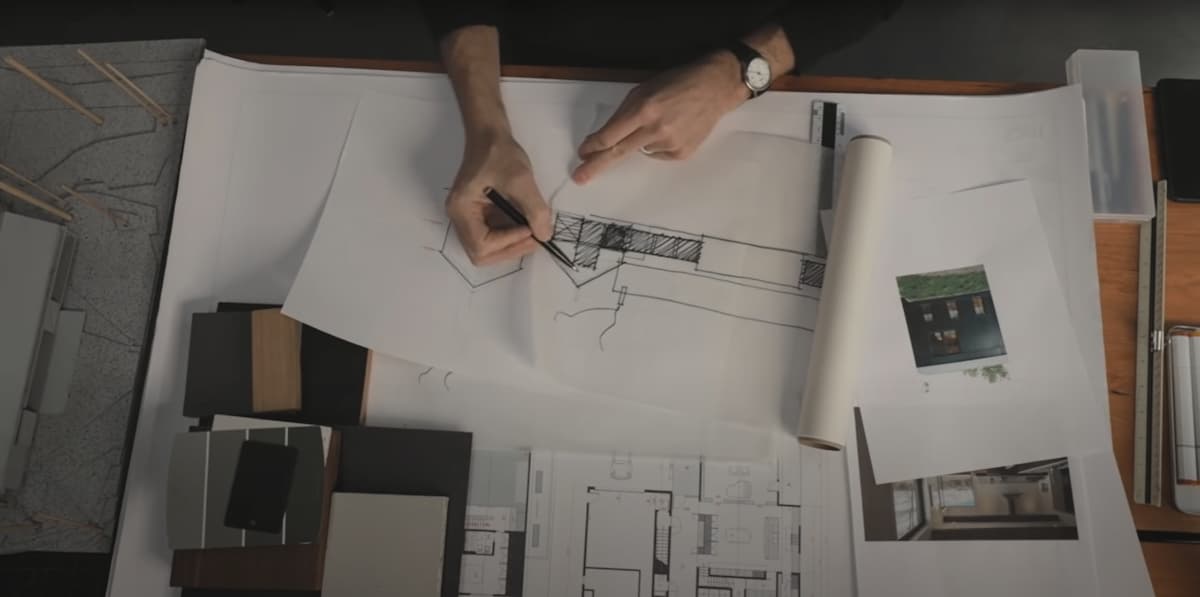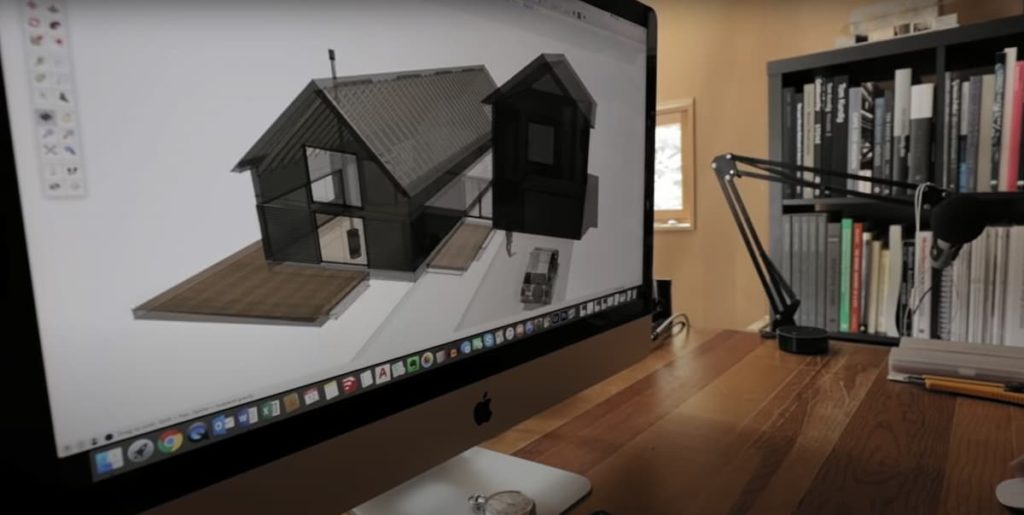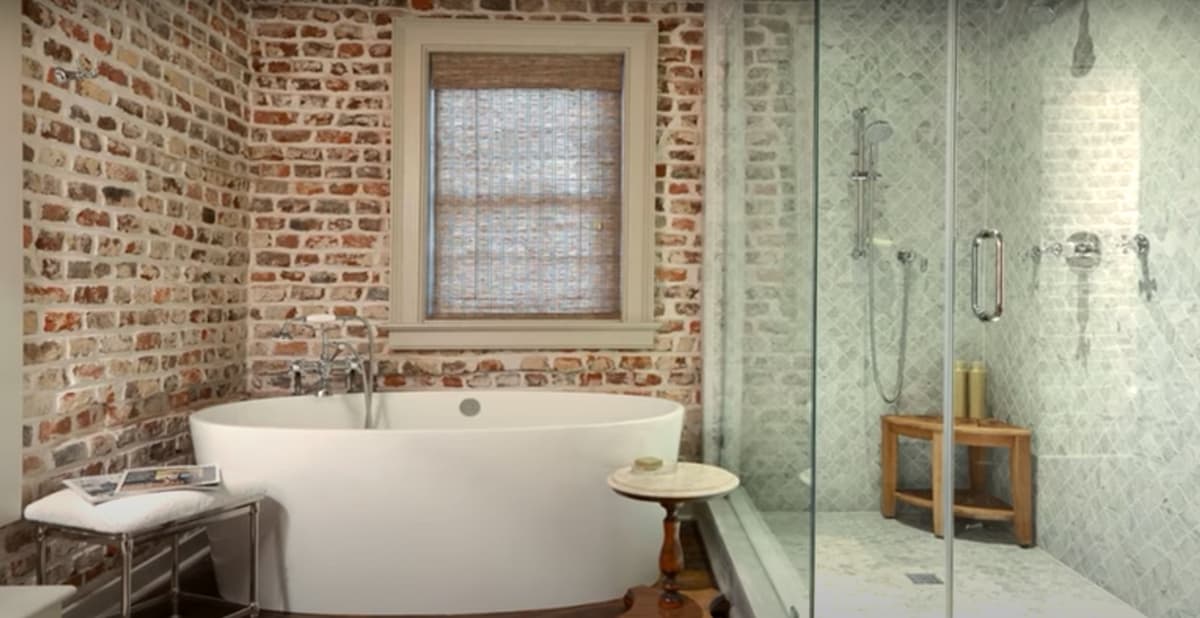
If you’re building a new house or doing major renovations, you may have considered hiring an architect to assist with the design and construction process. But what exactly does an architect do, how does the process work, and how much might it cost?
A renovation, house building, or unit construction project may need a lot of coordination and management. Designing a budget, determining an appropriate design, navigating the needed planning and building rules, selecting materials, recruiting the best builder, and managing the contract are just a few of the activities required.
According to the Australian Institute of Architects (AIA), architects may assist you in a variety of areas throughout the design-build process and beyond, with services that extend far beyond design and drawings. We’ll sketch out some of the ins and outs of working with an architect below to show you what they can accomplish for your project and how much it might cost.
What is an Architect?
According to the national architecture advisory service, Archicentre Australia, an architect is a skilled and licensed professional who may provide a variety of building design and construction services, such as houses and apartments. Some of these services include designing the inside and outside of a property according to a customer’s preferences and pricing, overseeing and assessing building construction, and submitting planning applications to local authorities.
In order to work as an architect in Australia, Archicentre Australia claims that they are obligated by law to follow the following procedures:
- To become an architect in Australia, you may complete a five-year program of higher education approved by the Architects Accreditation Council of Australia.
- You may get two years of industry experience under your belt before you can apply for this degree.
- Examinations may be successfully completed in both writing and speaking.
- According to the Architects Registration Board in each state or territory in which they intend to work, their license could be registered.
- At least $1,000,000 in professional indemnity insurance coverage could be in place.
- You may participate in professional development, whether it is required (in most states)
- You’d also need a keep paying an annual registration fee.
Architect Costs
For a home, many architects charge between 8 and 15% of the overall project cost or construction expenses. For a $600,000 construction, an architect may charge anything from $30,000 to $90,000. You may categorize an architect’s costs into three categories:
- 0.5 % for a Construction Certificate
- 1.0 % for a Design Development
- 1.5 % for a Concept Design
- 2.5 % for a Development Application
- 3.5 % for a Contract Administration
- 4.5 % for a Construction documents and detailed tender
The cost of an architect’s service may vary depending on the kind of job you need to complete. Additional services, such as project management, correspondence, and other tasks are often included in the price. If you want just house plans, an architect might charge around 5% of total building costs. An architect may request payment at the end of each stage or when the work is completed.
Architect Prices
A project manager may cost around $150-$250 per hour, depending on location and experience. If you have an architect supervise your builder or another construction professional to keep costs down, they might charge anywhere from 0 to 10% for this task.
Expect construction costs to be:
- Brick veneer is more expensive, with a price range of $1200 to $1600 per square metre.
- The cost of brick ranges from $1300 to $1680 per square meter.
- The most common house construction material is a timber frame house, which costs around $1480 per square metre.
There are also other professionals you’ll need to consider while calculating your budget, depending on the nature of your project. Other professional services include a structural engineer, town planner, heritage consultant, arborist, and hydraulic engineer, to name a few.
Architect’s Fees
There are several fixed fee structures for commercial architects’ services. Architects have a few methods for establishing their fees. The fee associated with building a new house is called a flat rate. In some cases, an architect or building designer may charge a fixed price based on the size of your property or a basic fee plus hourly expenses for plan modifications and unforeseen expenditures. They may often start by showing you examples of their previous work to acquire a better understanding of what you want and work out charges afterwards during your initial consultation.
The architect design process may charge a percentage fee based on the previous job. While the architect tries to stay within this budget, they may be more flexible and make adjustments as needed as the job progresses. Hourly rate, if a small project or something outside of the stated scope of works is being done, an architect may bill hourly fees.
This is the most common arrangement for project management. The number of hours it may take to complete the work could be agreed upon at the outset of a project. If anything changes, so do the lump-sum price. The daily fee is usually charged for small tasks or if you need anything outside of the project parameters. Hourly rates vary according to the architect’s level of experience, seniority, and so on. When architects are hired for full services, they generally charge percentage fees.

How Much does an Architect Cost Australia
According to architects, one of the “most significant issues” facing their sector today is the cost of services. Since 2005, architects’ fees have been a major topic of conversation since the AIA withdrew its Fee Guide, which professionals had largely relied on when pricing for projects.
The Australian Competition and Consumer Commission (ACCC) was concerned about the legality of this fee guide, which it deemed “anti-competitive,” and demanded that it be withdrawn. It has gotten more difficult for many architects to justify their fees to clients, especially those who are not familiar with the architecture process, responsibilities, or limitations.
Architects are generally not permitted to state openly about their professional charges, which might lead to a lot of uncertainty regarding what is and isn’t a fair price for specific services. There are certain architects who may take advantage of the situation and charge an unrealistically high fee for their service. It’s a shame that architects can’t be more open with regards to pricing, and it’s a failing in the field that needs to be addressed.
Why do Architects Use Percentage Fees?
AIA’s (American Institute of Architects) “Fee Guide” is used to provide examples of how much work would cost at certain percentages. Clients could then use this as a base for planning purposes, learning that items like site visits could cost between 1% and 2%, or that the architect’s fee for design could not go beyond 10%. It wasn’t mandatory, but architects tended to follow it closely because it was so widely known and respected by clients, who liked its simplicity.
But the guide had no legal power, if an architect wanted to charge more than 10% on top of fees for construction documentation, they were free to do so. And since many didn’t really understand how rates came about, there was often confusion around billing. The AIA withdrew the guide in 2005, citing legal reasons. There was concern that the ACCC would deem it anti-competitive and take action against an architect who used it to justify fees. Today, there is no real benchmarking tool for architects’ fees, if anything, Australia has gone backward when it comes to agreeing on what fair pricing could be.
This poses significant problems for clients trying to gauge whether or not their budgets are reasonable or too low/high. As many architects struggle with how best to calculate their service prices, they continue using various methods that may be outdated but were at least transparent enough.
Is it Worth Paying an Architect?
Few would argue that the advice of a professional architect shouldn’t be factored into any major construction project. There are many big-ticket items you need to take into consideration, from the building code to safety requirements, structural concerns and so on. This is beyond what most people are familiar with or have expertise in.
While it’s vital to choose an architect who is both experienced and qualified for your specific project, it’s also possible to find someone not necessarily well-versed in construction, but still able to give sound advice because they possess design capability. You don’t necessarily need a licensed architect or even an architectural graduate who can draft plans, but you do need someone whose knowledge is appropriate for the size and type of work being done.
The best approach is to ask for specific examples of similar projects they’ve worked on and the challenges they’ve overcome.
The Challenge With Hiring an Architect
Architects who rely on their design expertise alone, without putting in enough work to understand the industry’s legal and technical requirements, often find themselves in trouble. They undervalue or do not recognize their own skill sets, which can lead to poor working relationships and unhappy clients. It’s vital that architects charge fairly for their services, they need to be aware of their limitations when it comes to allowable fees, and they may use solid methods to estimate appropriate rates before applying them to a job.
There are still some architects who use percentage-based fees, usually between 2% and 4%, depending on the type of work. This can be beneficial for both client and architect, especially if you know ahead of time what services are required, how long the job may take and what materials need to be used (where applicable).
But this method doesn’t suit everyone, some may prefer a fee based on an hourly rate. Others may want to define their own rates. Make sure your needs are understood before hiring an architect, then look at how they communicate with clients, whether they’re respectful of budgets and timeframes (and yours), whether they’re willing to compromise or change their approach if necessary, and whether it seems like you could enjoy working together.
Hiring a Building Designer
Above all, don’t rush into making a decision without doing some research first because there’s always more than meets the eye.
There are many great architects out there, especially those who pay attention to what you’re trying to achieve and who listen first before making suggestions, their work may not be costly but it’s certainly valuable. You just need to take some time to find them.
We know that every project is different and every client has different needs, which is why we encourage clients to discuss what they want with professionals before providing an estimate. It’s important to believe in open communication, this way your satisfaction can be assured throughout the process.
How Much Should You Budget for an Architect?
It’s important to remember that hiring an architect may add to your costs and there are no cut-and-dry rules when it comes to figuring out what you could be paying. The design fees for residential architecture may vary from one region to another, and even between offices in the same area. Different types of projects often call for different rates architects who work on high-end homes may charge 4% or more, while those who specialize in renovations can get by with 2%. Architects working on mid-range, multi-residential projects tend to charge closer to 3%.
However, architect fees can range anywhere from 1.5% (for simple renovations) up to 10%, and some firms use both a percentage and hourly fee simultaneously. And while fees for some types of work may be less expensive, your final price tag may ultimately depend on the quality of service you get. It’s important to remember that not all architects are equal in terms of their skills, attention to detail and ability to offer creative solutions.
Fixed Fee for Building Designers
The standard fixed fee for an architect is typically 2%-4% of the construction cost. If you’re looking at a renovation or addition, rather than new construction, expect to pay within the range of 1%-2% architect cost. These rates are usually set by state law for most architects. Some states have laws regulating how fees can be split between the architect and owner, so find out if this applies in your area also. You can usually choose whether your project falls under which architectural regulations depending on where you live.





